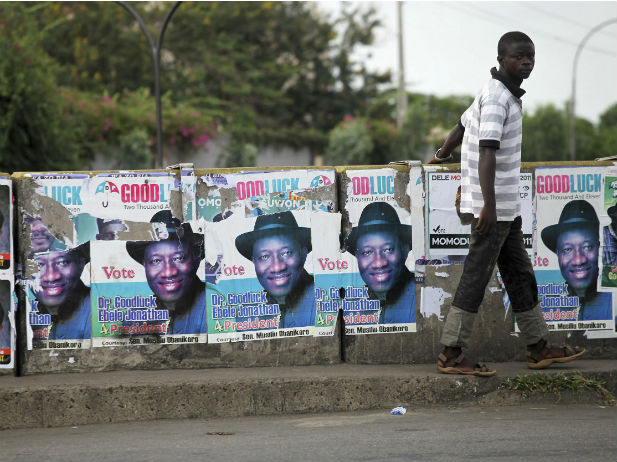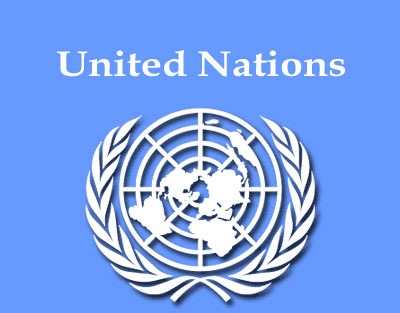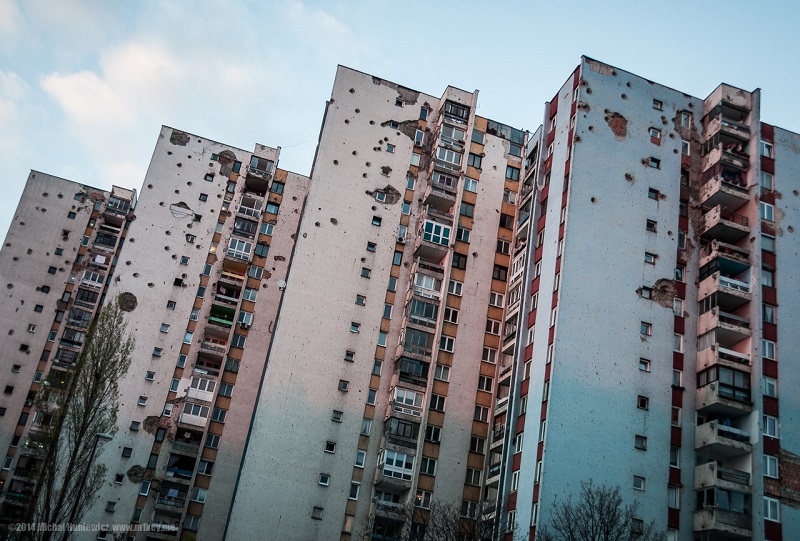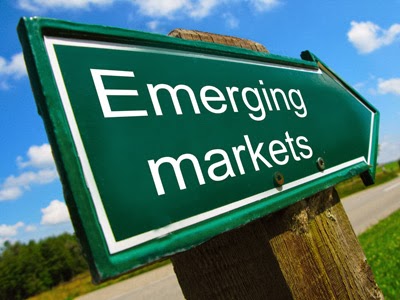In 2015, Nigerians will go to the polls to elect their president, governors and legislators for the fifth time since the transition to civilian rule in 1999. On the face of it, the elections might look like just another routine democratic exercise for one of the continent’s most prominent democracies. But this election promises to be different.
As things stand right now, the elections are shaping up to be the most pivotal event in Nigerian political history since the Civil War period in the late 1960s. As Nigeria builds up to election season, the state of the country is uncertain- it looks like Nigeria might have reached its breaking point. Islamist fundamentalists led by the Boko Haram network continue to wreak havoc in the northern part of the country in their goal to make Nigeria an Islamist state. Nigerian public debt now stands at $53 billion, and keeps on increasing.
On the political level, Nigeria’s ruling political party, the People’s Democratic Party (PDP) has split into two warring factions, while doubts remain about the newly formed All Progressives Congress (APC), considering the fact that the new party is just a recent merger of three formerly rival parties- not a recipe for stable politics.
Furthermore, poverty remains a big concern for the country, with the World Bank claiming that about 100 million Nigerians continue to live in poverty. The country has still been unable to solve its infamous power supply problem, an issue that has plagued Nigeria for at least three decades. Despite noble attempts over the years to diversify, Nigeria still remains heavily dependent on oil production to fund government spending and the Niger Delta, where Nigeria’s main export is extracted, still remains mired in uncertainty.
The elections will give the clearest indication yet of what direction the African power is headed in. Predictions of demise may yet prove to have been exaggerated or we might be watching a continental power collapse.
On the international level this election is not just significant for Nigeria but also important for Africa and the wider international community. Nigeria, being one of Africa’s most powerful states, serves directly or indirectly as a representative for Africa in the international community. Nigeria has served as an African non-permanent representative on the United Nations Security Council four times since 1960– the most for any sub-Saharan African country, and the second most for an African country, second only to Egypt.
A free and fair election would not only be a refreshing sight on a continent continuously plagued by corruption and instability, but it would also send a message to the rest of the international community that free and fair elections in Africa are not a fantasy. It is up to Nigeria to follow South Africa’s example in this department and provide a positive example for other countries.
Beyond the continent, The United States and NATO in particular will be watching the elections very closely. This is not only because they are interested in measuring the country’s democratic strides but also because of the recent spread of terrorism into West and East Africa and the ever-growing terrorist threat in sub-Saharan Africa.
As I have said in the past, the rise of terrorism in the region should be a big worry for the United States and NATO because it clashes directly with their long-term interests of eliminating the worldwide terrorist threat. The election is even more important because Nigeria is best placed in Africa right now to stop the terrorist wave from spreading further down the continent. Egypt and Libya are currently incapable of dealing with the terrorist threat from the North because of internal instability.
Nigeria is thus the first line of defense when it comes to countering the growing terrorist threat. The best shot that NATO and the United States have of halting the terrorist advance is by cooperating with important regional actors and seeing Nigeria’s importance on the continent, it is important that NATO and the United States have Nigeria involved in any plans. To this end, NATO and the United States will be hoping for a strong, united Nigeria at the end of the elections.




